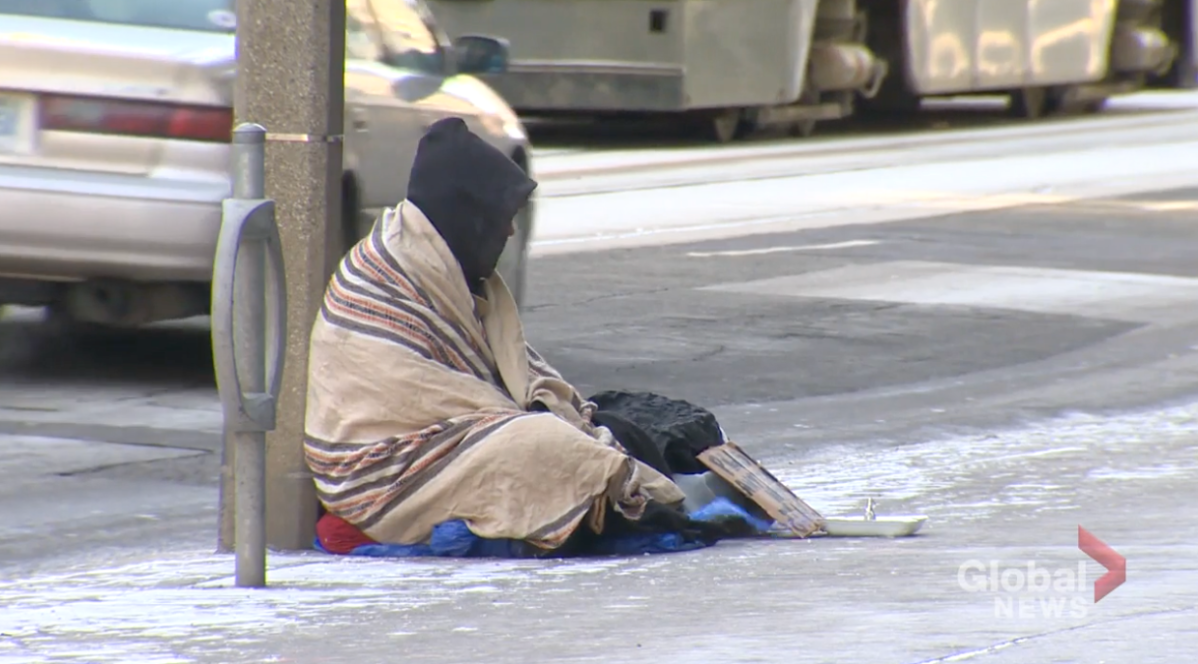On average, there are about 300 people experiencing homelessness in the city of Peterborough and Peterborough County every month.

That’s according to data provided by the city’s program manager of homelessness and addiction services Dorothy Olver.
Olver and the city’s housing manager Rebecca Morgan Quin provided a full update on the current homelessness crisis to Peterborough County council Wednesday morning — and the discussion dominated the morning session lasting more than an hour.
“We’re finding historically, year over year, that generally speaking, almost always, whatever our total number is, 50 per cent of the people on the by-name list have high acuity,” Olver said.
“That means they have a high-level need. If they go from homelessness to housing, they’re going to need some level of supports in place to keep them housed.”
Olver noted about 42 people per month experiencing homelessness are youth aged 16 to 24, 58 identify as Indigenous and 17 are seniors.
In 2019, 291 people were shifted from homelessness to housing, 450 in 2020, 251 in 2021 and 263 so far in 2022.
The emergency shelter system is nearly full, averaging about 85 per cent occupancy this year.
Council also heard some of the challenges faced in finding permanent housing for those in need, including low incomes; low vacancy rates; high rental costs; competition for units between seniors, students and those experiencing homelessness; the worsening opioid crisis; high acuity levels and those aging into chronic homelessness.
“Because we can’t move people quickly out of homelessness into housing it means they’re becoming more acute as they wait,” Morgan Quin said.

Get daily National news
“Homelessness is traumatic and it requires people to live in a survival mode, which takes an extreme toll on them psychologically, mentally and their physical and emotional health.”
Olver added that “Our average length of stay (at our emergency shelters) has definitely gotten longer because people don’t have anywhere to move to.”
“When we talk about the number of chronically homeless getting higher, is because people are spending more than six months in the shelter because they can’t find a place to move to out of there.”
The homelessness budget, which is funded by the province, city and county, is about $7 million.
The money goes to emergency shelter solutions, supportive housing, outreach and support services, housing assistance and overflow shelter services.
“We have some public lands available in the county and city and maybe it’s time we looked at building different types of buildings, whether it’s tiny homes that are 500-600 square feet that service individuals,” Trent Lakes mayor and county councillor Janet Clarkson said.
“We’ve got to decrease the costs of providing these buildings and utilize public lands. One of the hardships in the townships is you can’t afford the land. The cost of housing has become more than the average person can afford.
“If we put our minds together and pull up the available land that belongs to the city and county, maybe those vacant lands can be used with different types of architecture that can bring in much smaller units quickly and service people, including the young people who need work.”
County chief administrative officer Sheridan Graham also noted the county is working on a project with the Eastern Ontario Wardens’ Caucus (EOWC) around housing, including a regional approach involving all of the counties joining together.
“Part of that discussion is around available lands, including surplus lands or vacant properties, not only owned by municipalities, but also owned by the provincial and federal governments. We will be lobbying them more on that. Especially with rural schools closing, are there opportunities in those areas where we can convert them,” Graham said.
“As opposed to the municipalities getting first right of refusal at market value. We’d approach the province to give those properties to municipalities to utilize.”
Cavan Monaghan Mayor Scott McFadden said a “common-sense approach” was needed.
“We’ve got the average rent of $1,049/month. We have individuals that aren’t making that to pay the average rent. We have subsidies going to developers to build units where the one-bedroom unit is $1,600 and the three-bedroom affordable unit is $2,900 and that’s using federal dollars towards an affordable housing program,” he said.
“I know there’s an intermixing of affordable and attainable, call it whatever you want, and I’m putting a common-sense lens on it. What do we have to do to lobby and say ‘enough’? $1,600 is beyond ridiculous.”
Morgan Quin responded that the program wasn’t targeted to affordable housing but when it opened it was announced as affordable and that the EOWC is doing work to address the need.
McFadden said he appreciated the discussion was taking place with the EOWC but noted the county was flawed because it has no seat on the board and the city isn’t involved with the EOWC.
“We are all involved and collectively in this, but we have no say,” he said.
“I can appreciate the efforts are being made, but all these players need to be sitting at the table right up front.”
The United Way Peterborough & District is hosting a Peterborough mayoral candidates debate on Oct. 5 that will focus on homelessness in the city.








Comments